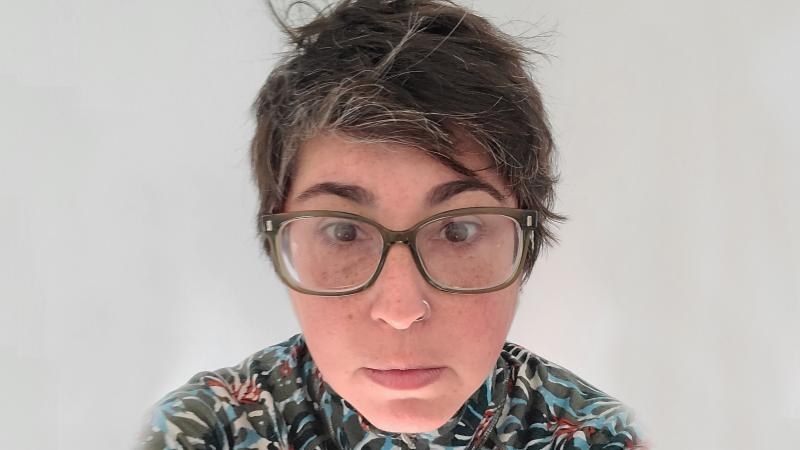January 19, 2022

Jarah Moesch, a lecturer in the Department of Science and Technology Studies at Rensselaer Polytechnic Institute, has curated an art exhibition across two art galleries in Toronto, Canada that will explore the transformative power of rituals found in the expansive disability community.
The exhibition, #CripRitual, features artwork created by disabled artists to express the rituals, habits, design practices, ceremonies and social scripts experienced by disabled, crip, d/Deaf, Mad, and Sick people as they attempt to navigate systems that are not built for them.
“With #CripRitual, we seek to center disability as valuable through transformative practices of disability culture,” Moesch said.
The word crip is a reclaimed form of the word “cripple” that some disabled people use to describe their own identity or community, often in response to social imperatives to be normal, productive, or able-bodied. Rituals are practices that transform and draw together social worlds.
A global collective of more than 20 artists were selected to participate in #CripRitual and show their artwork that recognizes crip rituals as processes and events for surviving ableism and claiming power.
The exhibition is on display at Tangled Art + Disability, Toronto and the Doris McCarthy Gallery, University of Toronto Scarborough.
In addition to the in-person experience, the galleries will offer curator talks, artist panels, and innovative live-remote tours where virtual visitors will be ‘walked’ through the show by a docent using an ipad on wheels and a headset that will allow the visitor to interact with the show.
The show begins January 21 and runs through April 1.
Moesch, an artist and scholar whose research focuses on systemic issues of justice through accessibility and interdependence, is joined by co-curators Aimi Hamraie and Cassandra Hartblay. All three are members of The Critical Design Lab, a collective of disabled, crip, and neuroqueer maker-theorists and allies that creates public-facing projects rooted in a critical design practice informed by disability culture and science and technology studies.